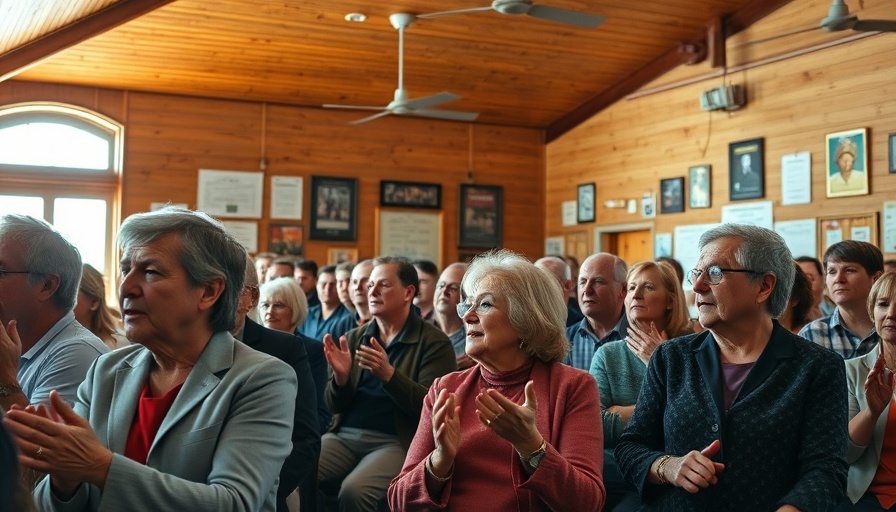
Remembering Robert Sobukwe: The Legacy of a Freedom Fighter
The African People’s Convention (APC) recently gathered in Makhado, Limpopo, to commemorate one of South Africa's significant historical figures, Robert Sobukwe. As the founding president of the Pan Africanist Congress (PAC), Sobukwe's life and legacy continue to resonate, particularly among those fighting for social justice and racial equality in modern times. This event marks one in a series of memorial lectures designed to keep his spirit alive in the hearts and minds of the current generation.
Voices from the Past: The Challenge of Historical Amnesia
APC President Themba Godi highlighted a crucial issue confronting Sobukwe's memory: the absence of recorded audio or video of his speeches. "We have no audio or video recordings to contribute to the liberation of today’s generation," Godi lamented. This loss is particularly concerning as it symbolizes a broader cultural amnesia regarding South Africa's anti-apartheid struggle.
The erasure of Sobukwe’s voice raises alarm that the younger generation may not fully grasp the depth of the fight for freedom in South Africa. Estimates suggest that without these recordings, the contemporary understanding of past struggles, like those led by Sobukwe, remains severely incomplete.
The Need for Accountability Amidst Political Change
The memory of Sobukwe is also a call to action for the current political climate in South Africa. As citizens gear up for the 2024 general elections and the 2026 municipal elections, political accountability becomes paramount. With opposition parties like the Democratic Alliance (DA) and the Economic Freedom Fighters (EFF) eagerly vying for power, there is an urgent need for a transparent discourse on governance, particularly considering the historical struggles against systems of oppression.
The African National Congress (ANC), currently in power, must reflect on its own complicity in the erasure of Sobukwe’s legacy as it navigates the challenges of coalition governance. This extends beyond mere remembrance into a sphere of practical reforms aimed at enhancing service delivery, judicial independence, and anti-corruption measures. Failure to address these issues not only undermines Sobukwe’s legacy but also risks sidelining the voices of the very demographic that fought tooth and nail for their rights.
Historical Context: The Rise of the PAC
Sobukwe's emergence as a key figure in the anti-apartheid struggle came during a time of intense political polarization. The PAC, formed in response to the ANC’s perceived compromises with other racial groups, sought to reclaim the narrative for black South Africans. This schism within the liberation movement highlights the varied strategies employed to combat systemic oppression, with organizations like uMkhonto weSizwe (MK) advocating for armed struggle against apartheid.
Understanding Sobukwe’s approach provides vital lessons in ongoing struggles for racial reconciliation and economic redress in South Africa today. His vision of political leadership and liberation is both a challenge and an inspiration for contemporary figures pursuing reform and justice.
Contemplating the Future: A Call to Action for Governance Reforms
The APC’s memorial lecture serves as a vital moment for reflection on the trajectory of the country's governance. As South Africa faces widespread issues such as income inequality, youth unemployment, and public sector reform, it is essential to remember Sobukwe’s teachings. His belief in empowering the disenfranchised remains a guiding principle for many current political discussions, particularly among grassroots movements advocating for genuine change.
The prevailing need for electoral integrity and effective public sector reforms urges both current parties and the electorate to remain vigilant. This vigilance is not just about honoring history but crafting a future that lives up to Sobukwe’s dreams of African unity and justice.
Concluding Thoughts: Reviving Sobukwe’s Legacy
As the APC continues to honor Robert Sobukwe through its memorial initiatives, it reinforces the importance of engaging younger generations in discussions surrounding social justice and political accountability. The strength of Sobukwe's message, advocating for freedom and dignity, resonates today as much as it did during his lifetime. To truly move forward, South Africa must not only remember the past but apply its lessons to achieve a more equitable society.
Identifying effective responses to longstanding issues around land reform, education, and economic policy will be critical in fulfilling the ideals that Sobukwe lived and fought for. We invite readers to reflect on these themes and to engage in civic discourse as we approach an election cycle filled with potential change.
 Add Row
Add Row  Add
Add 




Write A Comment